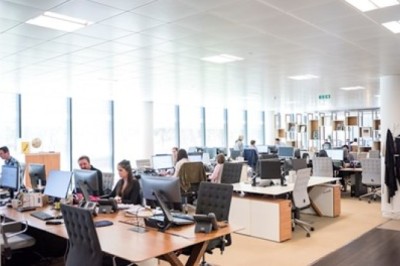views

Alt: Skyline of a city
Choosing the right location for your business relocation can influence long-term success. Businesses often face a choice between tech hubs or tax havens. Both offer unique advantages and distinct challenges. Understanding their core features ensures better decision-making.
What Defines a Tech Hub?
Tech hubs are cities that prioritize innovation and entrepreneurship. They are known for dynamic ecosystems filled with startups, accelerators, and established companies. Examples of tech hubs include Silicon Valley, Bangalore, and Tokyo. These places provide access to state-of-the-art infrastructure and a highly skilled workforce. Another key point is the presence of venture capital and networking opportunities. These factors make tech hubs ideal for new companies looking to scale rapidly.
However, tech hubs come with challenges. High living and operational costs often strain businesses. Similarly, competition for top talent can be overwhelming. These pressures require companies to weigh the benefits of innovation against the costs.
The Appeal of Tax Havens
Tax havens attract businesses with favorable tax policies and regulatory ease. Popular examples include Singapore, Luxembourg, and the Cayman Islands. These locations offer reduced corporate taxes or complete exemptions, making them appealing to businesses focused on cost efficiency. Another key point is the reduced regulatory burden, simplifying compliance and operational processes.
Tax havens also have drawbacks. A notable challenge is the limited availability of skilled professionals. Businesses operating in these locations may need to rely on remote teams. Besides, reputation risks arise, as some may view tax havens negatively. Companies must consider these risks alongside the financial benefits.

Alt: Burj Al Arab on a sunny day
Capt: Understanding the outcomes of your business relocations helps clarify options
The Role of Networking in Business Relocation
Relocating your business can open up a world of networking opportunities that might not be available in your original location. In tech hubs, these opportunities are often built into the ecosystem. Events, workshops, and conferences unite like-minded entrepreneurs, investors, and industry leaders, offering avenues to expand your reach. By connecting with professionals and organizations in your field, you can access resources that help you develop your business further, gain insights into industry trends, and explore potential partnerships.
While the networking scene might be quieter in tax havens compared to bustling tech cities, the focus on business growth can still lead to valuable connections. For example, cities like Singapore attract international investors and financial experts, opening doors to new business channels. Building relationships in these environments often translates to strategic financial advice, cross-border partnerships, and improved access to global markets. Networking, therefore, is a vital tool for ensuring your business thrives in any relocation scenario.
Factors to Evaluate for Your Business Relocation
Strategic alignment is important. The chosen city must support your operational and growth objectives. Tech hubs are suitable for businesses seeking innovation and collaboration. In contrast, tax havens are better for firms prioritizing cost efficiency.
Workforce requirements are another key point. Tech hubs offer access to talent pools in areas such as engineering and research. Tax havens, on the other hand, may lack local talent, requiring businesses to outsource or relocate employees.
Market accessibility is vital. Cities closer to target markets improve distribution and customer relations. For instance, Dublin is a gateway to European markets while offering tax advantages.
Long-term sustainability matters, especially if your funds are limited. Cities with strong economic prospects ensure that businesses can grow without relocating again. Consider factors like infrastructure, policy stability, and growth opportunities. Besides, a city's lifestyle quality affects employee retention and leadership satisfaction. Amenities, safety, and cost of living influence the overall workplace environment.
Comparing Tech Hubs and Tax Havens
Tech hubs and tax havens offer distinct advantages. Tech hubs emphasize innovation, collaboration, and rapid growth. They are ideal for businesses relying on creativity and continuous development. Examples include software firms and biotech companies.

Alt: A big city in a dawn
Capt: Tech hubs emphasize innovation, collaboration, and rapid growth, while tax havens prioritize cost-saving and regulatory simplicity
Tax havens prioritize cost-saving and regulatory simplicity. They suit firms in industries like financial planning services and digital goods. Another key point is the ability of tax havens to support global operations. Companies operating internationally often benefit from their lenient policies.
Hybrid options like Dublin and Estonia combine aspects of tech hubs and tax havens. These cities provide favorable tax conditions while maintaining innovative ecosystems. As an illustration, many tech companies choose Dublin for its mix of talent availability and tax efficiency.
Real-Life Case Studies: Success Stories in Relocation
Understanding the outcomes of your business relocations helps clarify options. A notable example is a fintech firm moving to Singapore. The city-state provided regulatory incentives and market access, boosting profits.
Another case is a startup relocating to Berlin, a tech hub with lower costs than Silicon Valley. The move enhanced their talent acquisition while maintaining access to innovation networks.
As an illustration, consider a global corporation shifting its headquarters to Luxembourg. The tax advantages allowed them to reduce costs significantly. These examples highlight the importance of aligning location with business needs.
Questions to Ask Before Making the Move
Relocation is a significant decision. Start by defining your primary goals. Are you prioritizing growth, savings, or innovation? Answering this narrows down potential locations. Next, assess the city’s long-term economic outlook. A stable economy reduces risks and ensures steady growth.

Alt: Burj Al Arab in the morning
Capt: Plan carefully, prioritize research, and make a choice that supports growth and sustainability
Consider how local policies affect operations. Research tax laws, regulatory requirements, and compliance risks. Besides, evaluate cultural and legal adjustments. Employees may face challenges adapting to a new environment. Understanding these factors helps ensure smooth transitions.
Another key point is the impact of relocation on your workforce. Will you hire locally or transfer existing employees? Consider the costs and benefits of both strategies.
Summary: Making the Final Decision for Your Business Relocation
Choosing the right city for your business relocation requires thoroughly evaluating goals, challenges, and opportunities. Tech hubs offer innovation and collaboration but come with high costs. Tax havens provide financial advantages but may lack skilled talent.
Hybrid cities offer a balance, catering to businesses seeking both innovation and cost-efficiency. In short, aligning your decision with long-term objectives ensures the best outcome. Plan carefully, prioritize research, and make a choice that supports growth and sustainability.
Meta: Discover whether tech hubs or tax havens are the ideal choice for your business relocation. Find unique insights for making a decision.






















Comments
0 comment